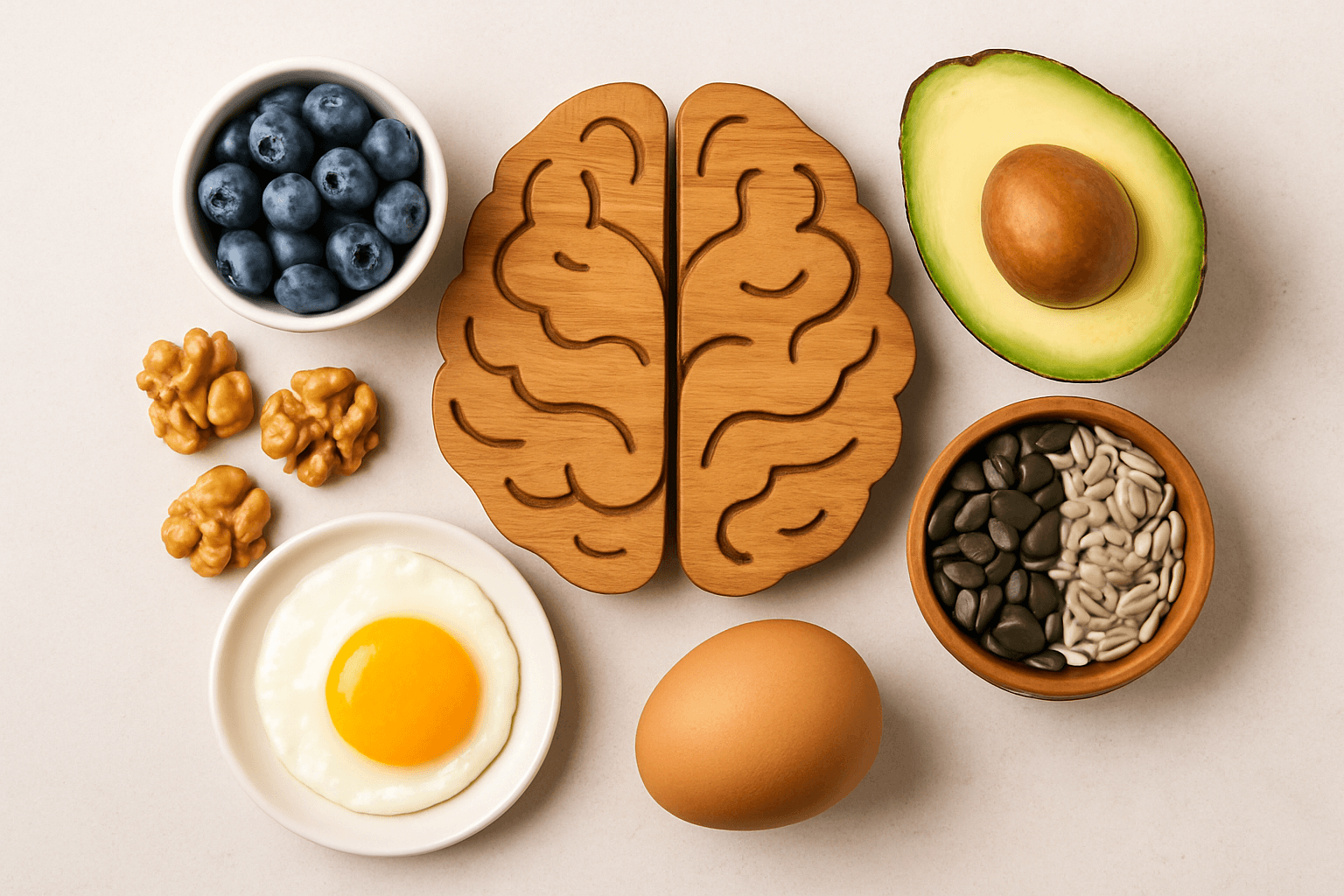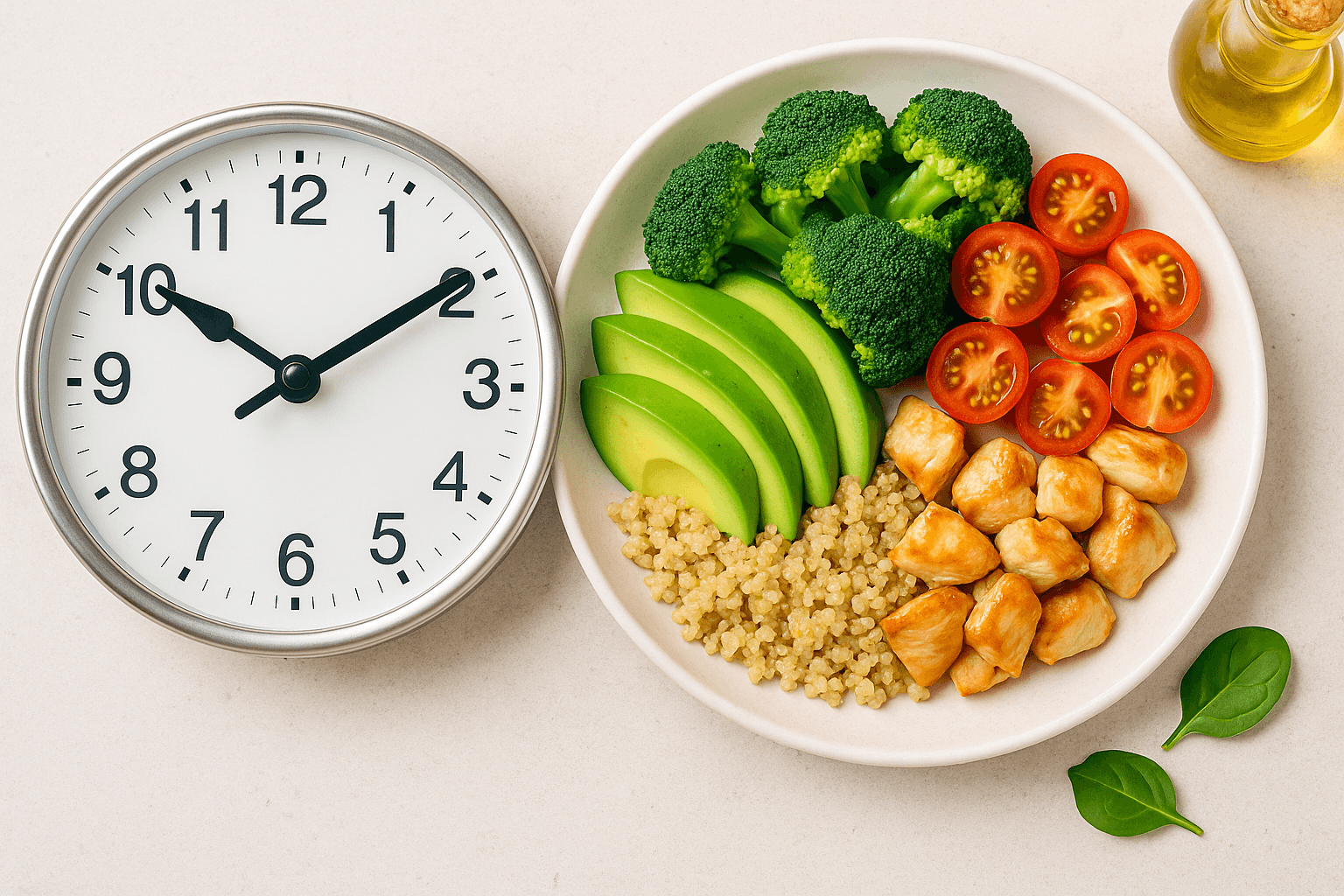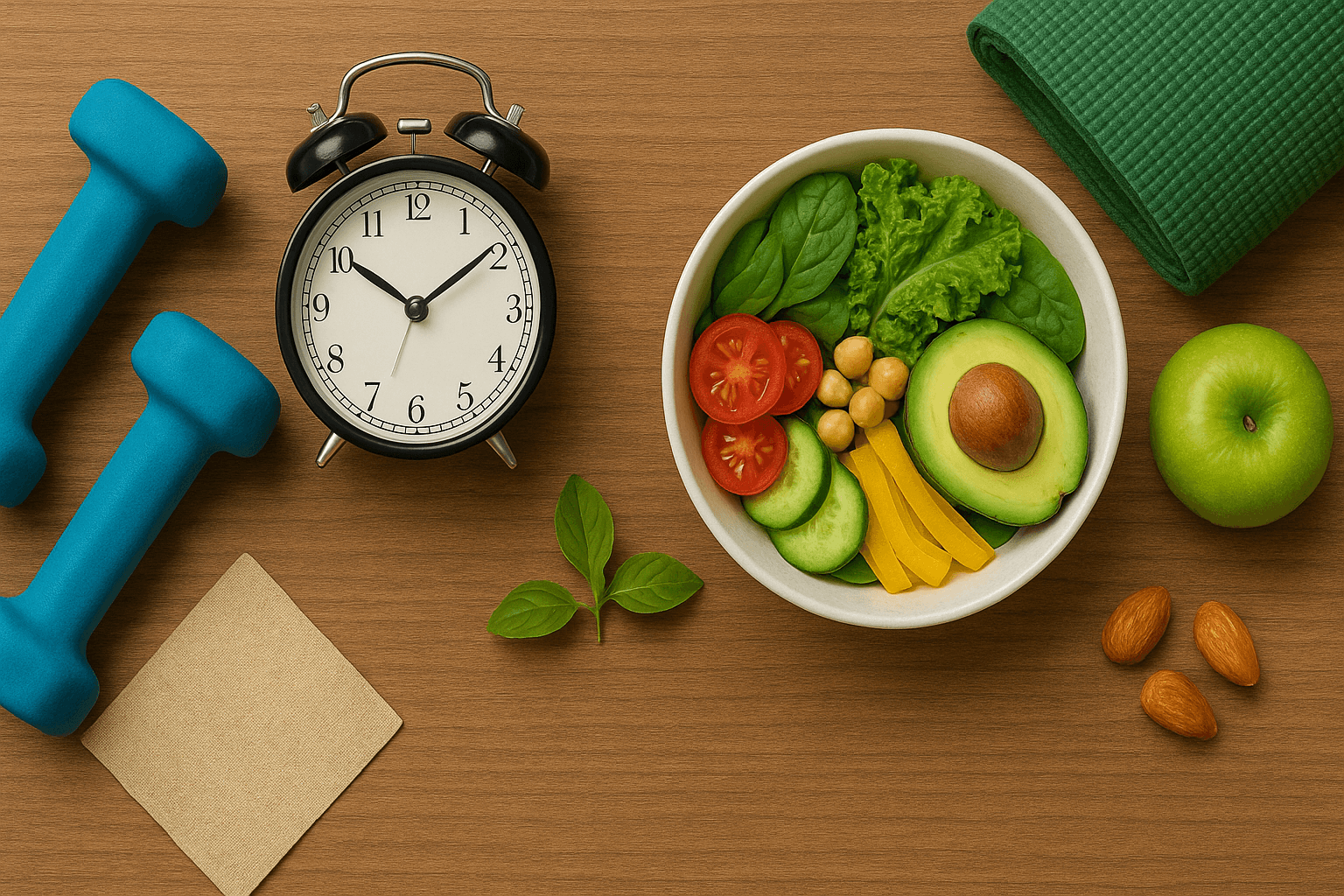Feed Your Focus: The Neuroscience Behind How What You Eat Boosts Your Memory, Intelligence and Long-Term Brain Health
Published on August 26, 2025

** Your brain runs on food. The foods you eat today can have a long-term impact on your health and your cognitive vitality — where you’ll be decades from now.**
Your brain is 2% of your body weight, but it consumes 20% of your energy. That’s one of the most metabolically active organs in your body. It needs a steady supply of nutrients, oxygen, antioxidants and metabolic stability to operate at optimal performance.
What Your Brain Needs to Thrive
The brain demands favorable conditions to perform at its best:
Stable blood sugar levels
Healthy fats: The DHA and other omega-3s are necessary for brain cell membranes
Antioxidants: Brain is very vulnerable to oxidative stress
B vitamins and minerals: Essential for the production of neurotransmitters and methylation
Oxygen and blood flow: Vascular health = brain health
Low inflammation: Chronically inflamed brains are associated with cognitive decline
Brain Fog, Fatigue, And The Food Connection
Brain fog is a symptom. And, more often than not, it begins on your plate.
What causes brain fog from food:
Post refined-carb blood sugar crashes
Gluten, dairy or artificial-additive sensitivity
Omega-6 seed oils and other processed fats
Dehydration
Not enough protein at breakfast
Symptoms include:
Inattentiveness and difficulty focusing
Trouble finding words
Sluggish thinking or mental fatigue
Afternoon fatigue
The Gut-Brain Axis: Your Second Brain Really Matters
More than 90% of the body’s serotonin is produced in the gut. Your vagus nerve mediates communication between your enteric nervous system (gut) and your central nervous system (brain). What goes on in your gut affects mental functioning.
Nurture your gut-brain axis by:
Consuming a diversity of plants for microbial diversity
Introducing fermented foods like kimchi, kefir or miso
Avoiding ultra-processed food and artificial sweeteners
Supporting gastrointestinal integrity with bone broth, collagen, and zinc
Inflammation: The Quiet Brain Saboteur
Chronic inflammation kills neurons and disrupts memory and accelerates brain aging. Neuroinflammation is linked to depression, anxiety, Alzheimer’s, ADHD and more.
Worst inflammatory foods:
Sugar and refined carbs
Processed meats
Industrial seed oils: soybean, canola, corn
Excess alcohol
Brain protectors:
Turmeric, ginger and rosemary
Berries, leafy greens and cruciferous vegetables
Fatty fish and flaxseed
Green tea and dark chocolate (rich in polyphenols)
The Brain Nutrients You Need To Stay Sharp
Omega-3s (particularly DHA):
Building block of brain cell membranes
Promotes mood, memory and learning
Sources: salmon, sardines, algae oil
B vitamins (B6, B12, folate):
Neurotransmitter synthesis and homocysteine regulation
Sources: leafy greens, eggs, meat, beans
Magnesium:
Promotes relaxation, sleep, and synaptic plasticity
Sources: pumpkin seeds, spinach, almonds
Vitamin D:
Regulates gene expression in the brain
Modulates serotonin and immune signaling
Sources: sunlight, fatty fish, egg yolks
Choline:
Essential for acetylcholine (memory neurotransmitter)
Sources: eggs, liver, soy lecithin
Polyphenols and flavonoids:
Preserve neurons from oxidative stress
Sources: blueberries, grapes, green tea, cocoa
Best Brain-Boosting Foods
Wild salmon and sardines
Pastured eggs
Blueberries and raspberries
Walnuts and flaxseeds
Dark green leafy vegetables (kale, spinach, chard)
Green tea and matcha
Fermented foods (yoghurts, sauerkraut)
Avocados and olive oil
Daily Plan And Weekly Plan for a Sharper Brain
Morning:
Water + electrolytes or herbal tea
Breakfast: eggs with avocado + greens sautéed in olive oil + berries
Exercise: a walk in the sunshine, stretching, or a cold shower
Midday:
Lunch: quinoa salad with wild-caught salmon, arugula, roasted beets, olive oil vinaigrette
Optional: green tea or matcha
Afternoon:
Snack: walnuts + apple slices or a protein shake with MCT oil
Breathwork, catnap, or a focus sprint
Evening:
Dinner: lentil stew with turmeric, ginger, sweet potato and sautéed greens
Wind down: avoid bright lights, use blue-light blockers, journal writing
Rest: 7–9 hours of sleep for memory consolidation and detox
Activity: Resistance + aerobic training increases neurogenesis
Stress resilience: Chronic stress impairs memory and learning
Connection: Social interaction protects against cognitive decline
Learning: Neuroplasticity thrives when the brain is challenged
Bottom Line: You Can Eat Your Way to a Better Brain
Sharp thinking, deep focus, a stable mood and long-term cognitive health are not luck. They’re built through daily habits — on your plate, in your rhythms.
The brain you have at 80 is the one you built decades before.
So eat to feed neurons. Prioritize anti-inflammatory plants. Get your protein, sleep, and movement.
Every bite is a step toward clarity, strength and longevity.
Eat for your mind. Feed your focus. Build your future.








